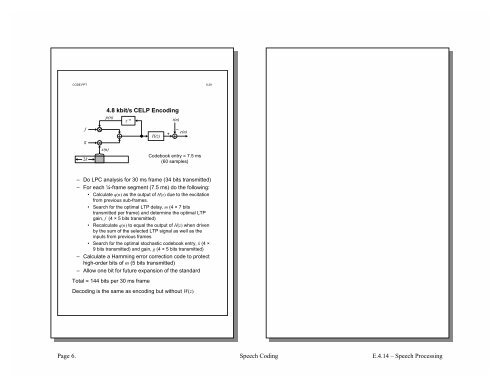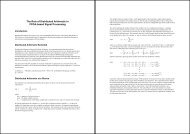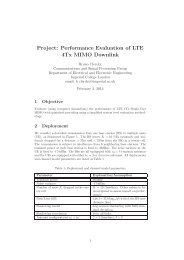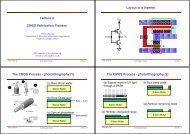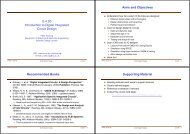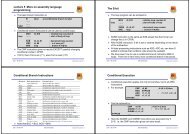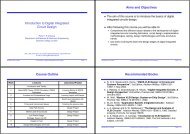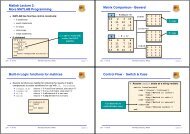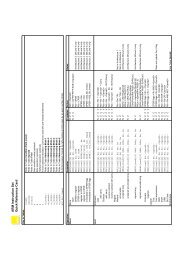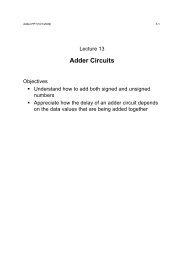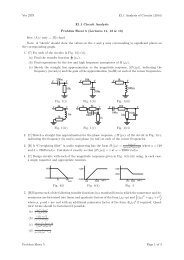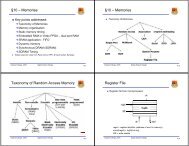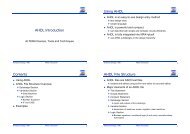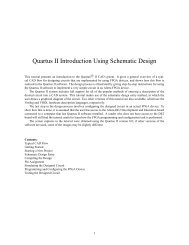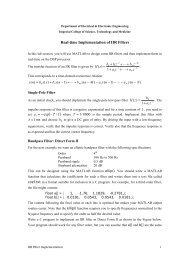Encode Decode
Encode Decode
Encode Decode
You also want an ePaper? Increase the reach of your titles
YUMPU automatically turns print PDFs into web optimized ePapers that Google loves.
CODE.PPT 6.29<br />
f<br />
g<br />
2k<br />
×<br />
×<br />
x(n)<br />
4.8 kbit/s CELP Encoding<br />
p(n)<br />
z –m<br />
t(n)<br />
–<br />
e(n)<br />
+ H(z)<br />
+<br />
+<br />
Codebook entry = 7.5 ms<br />
(60 samples)<br />
– Do LPC analysis for 30 ms frame (34 bits transmitted)<br />
– For each ¼-frame segment (7.5 ms) do the following:<br />
• Calculate q(n) as the output of H(z) due to the excitation<br />
from previous sub-frames.<br />
• Search for the optimal LTP delay, m (4 × 7 bits<br />
transmitted per frame) and determine the optimal LTP<br />
gain, f (4 × 5 bits transmitted)<br />
• Recalculate q(n) to equal the output of H(z) when driven<br />
by the sum of the selected LTP signal as well as the<br />
inputs from previous frames<br />
• Search for the optimal stochastic codebook entry, k (4 ×<br />
9 bits transmitted) and gain, g (4 × 5 bits transmitted)<br />
– Calculate a Hamming error correction code to protect<br />
high-order bits of m (5 bits transmitted)<br />
– Allow one bit for future expansion of the standard<br />
Total = 144 bits per 30 ms frame<br />
Decoding is the same as encoding but without W(z)<br />
Page 6. Speech Coding E.4.14 – Speech Processing


